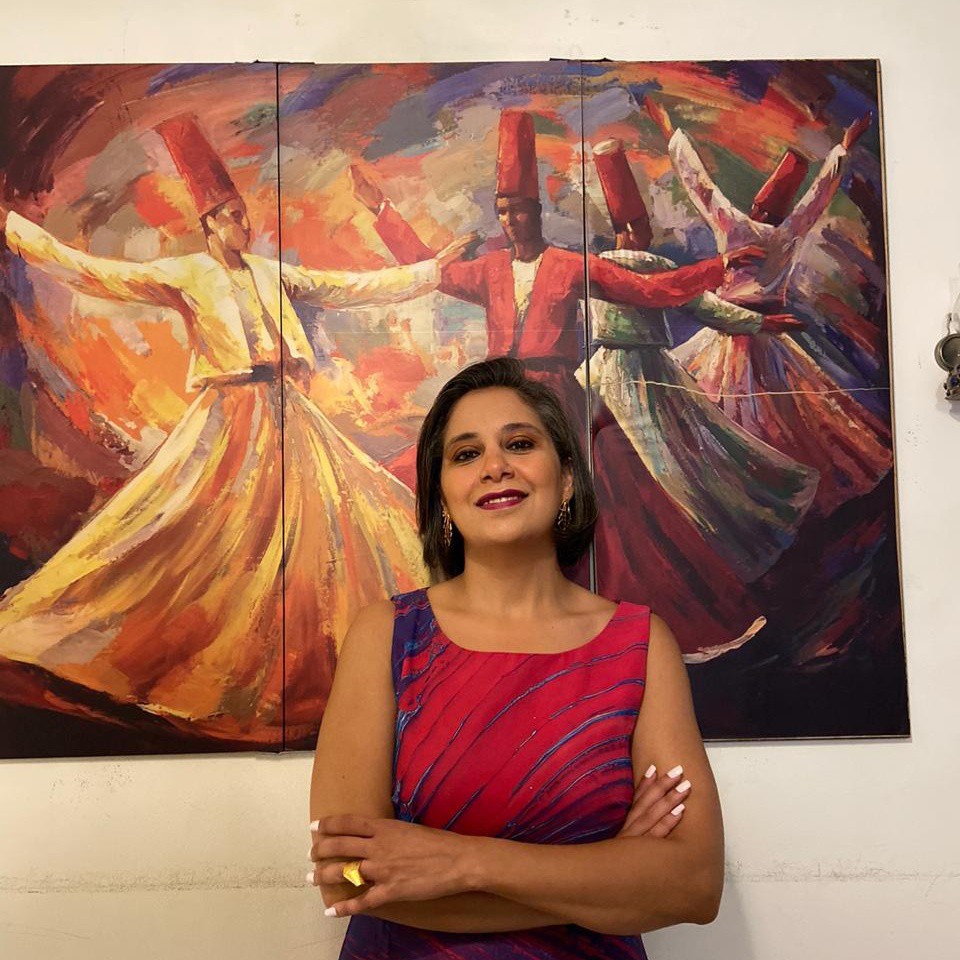Mozn Hassan is an Egyptian feminist, human rights defender, founder and Executive Director of Nazra for Feminist Studies. She is also a board member of the Global Fund for Women.
EuroMed Rights: What is your personal experience of online gender-based violence?
Mozn Hassan: I have different experiences with online violence, both as a feminist activist and also in relation to different cases we have worked on at Nazra. I have seen first-hand how online violence increases and affects women’s safety and security: I have personally faced ugly online campaigns. And so did Nazra as an organisation.
These attacks usually spiral when we take a clear position about incidents of sexual violence. They become even harder if (and when) we speak about political activists or human rights activists. Nazra (and myself) have both been systematically targeted in the last 2 years by pro-state actors and people attached to other conservative political groups.
There is a specific form of online violence targeting women human rights defenders (WHRDs) which is enacted by different people. While some people are connected to political movements, others use fake accounts and launch smear campaigns targeting the personal lives of WHRDs. The case of Esraa Abdel Fattah is one clear example of such a targeted campaign that was carried out whilst she was in jail for more than a year.*
On which platforms does this violence take place?
I think the platform is a generational thing. The generations who use Facebook and Twitter have experienced violence there. But the younger generations who use Tiktok and Instagram more face backlash on these newer platforms too.
You live in Egypt. Are victims of cyber violence supported by the police? Are there effective laws in place to protect women form violence online?
The Egyptian authorities have a special committee to deal with online harassment, but the implementation of its regulations are either slow or the responses themselves have a conservative, patriarchal approach towards women. These responses often consider that these are “not good women from the beginning and that is why they have been targeted”.
The State’s message is clearly not in support of women. We can’t really say there is protection in the cyber sphere when, they are jailing women based on content they publish on Tiktok . A women arrested was raped by a person she connected with through Tiktok. Nevertheless, she was kept in jail as a clear message that she deserved this.
What are your personal strategies for avoiding and/or managing forms of online violence perpetrated against you? Do you censor yourself on online platforms?
Generally, I am not a social media person and don’t share a lot on it, especially not when it comes to my personal life. But it is true that I am censoring myself. Online violence also has an effect on your psychology as a person. Some people might decide to change their characters to be accepted in the online world – I do not want this phenomenon to affect my activism or me personally.
What do you think the aim of the violence you receive online is?
I think the online world has become the new public sphere either because of a closure of the public sphere for civic movements or because of the pandemic. Therefore, societal violence is increasing online. It is an undeniably gendered phenomenon which impacts women disproportionally. Targeting women’s personal lives in an attempt to destroy them mentally and to take away their credibility is facilitated online.
*Esraa Abdel Fattah is an Egyptian political activist and journalist who advocates through digital media for human rights and in defence of youth protest movements in Egypt. She has been repeatedly and arbitrarily arrested since 2008, when the authorities nicknamed her “Facebook Girl” after she launched a webpage, along with other activists, to urge young people to join a general strike to demand political change. EuroMed Rights, among other organisations, monitors her situation and at present (November 2020) she has spent more than 400 days in prison. During this same period, as reported by independent media Mada Masr, state-run news outlets have published multiple pieces “speculating about the details of Abdel Fattah’s private life” as “part of a larger smear campaign that has emerged against her”. Several Youtube accounts have been created to leak alleged phone calls between Abdel Fattah and contacts abroad.

